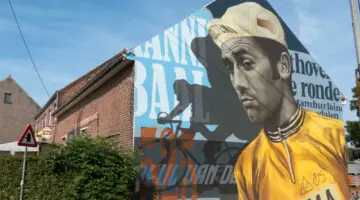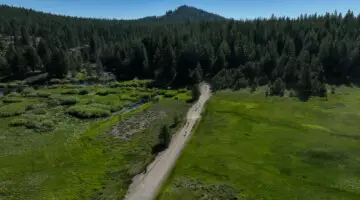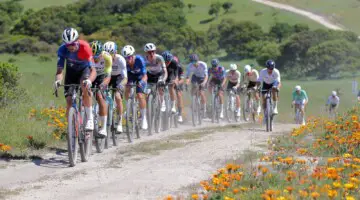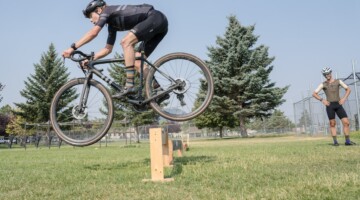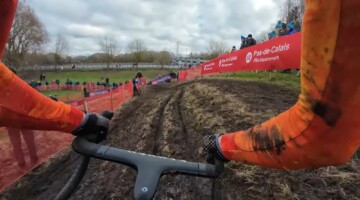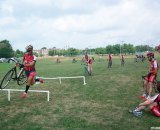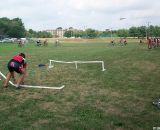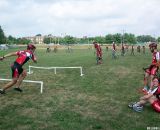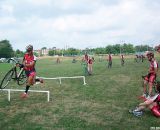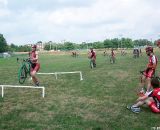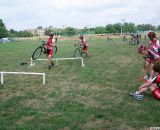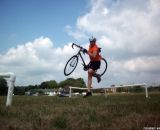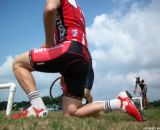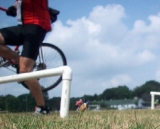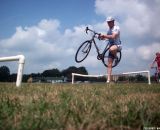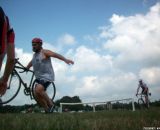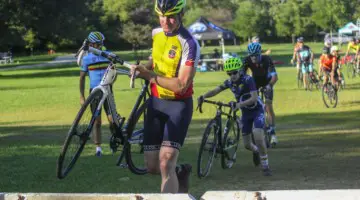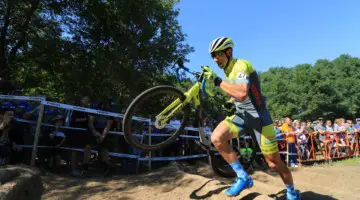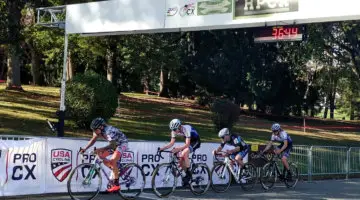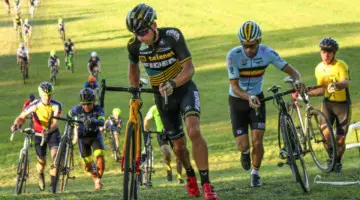Pros and coaches are starting to announce dates for summer cyclocross clinics, and if you’re new to the sport, or you just want to brush up on your skills, then you might want to consider checking one out in coming months.
The idea of going to a cyclocross clinic can be daunting for some. It’s nerve-wracking to be confronted with trying new techniques, learning completely new skills or even just practicing old ones in front of a crowd. And for me, lining up and taking an off-camber taped-off turn with everyone else watching sounds sort of like the fourth or fifth circle of hell. However, it’s not that bad. Really. In fact, it can be pretty darn fun, not to mention extremely helpful.
I went to the Rutgers Cyclocross Clinic this past weekend in order to improve my skills, but also so I could make a report back about just how painless/painful it really was. And while I admit I’m pretty sore today, I can also happily admit that I learned a lot and I’m feeling a lot more confident for the season. And it turns out, when you’re doing an off-camber turn and you think everyone is watching, they probably aren’t. They’re in line worrying about people watching them during their turn.
In the three-hour sessions on Saturday and Sunday, the clinic, run by Patrick Bradley of Rutgers Cycling and the Philadelphia Cycling School team, covered a wide variety of topics and catered to all levels of experience. And clinic promoter George Ghanim made sure that the participants were taken care of, with Rutgers Cycling sponsor Efinger Sporting Goods supplying riders with goodies including Gus, water and some surprises at the end. If you do attend a clinic, here are a few of the topics you can expect to learn about:
- Starts: unlike road racing where the final lap is the most important, often in cyclocross the first lap and getting the “hole shot” is key to having a great race, so being able to clip in and sprint from the gun are important techniques to learn.
- Mounts and Dismounts: one of the most important time-savers a new rider can learn is how to mount and dismount with ease. At the clinic, the coaches went over the technique, explaining their logic for each motion, and then supervised the group as they went across the field and back, slowly remounting and dismounting. (Stay tuned for a video featuring Patrick Bradley sharing his tips and tricks for dismounts.)
- Off-Camber Turns: so many races set up taped off-camber turns, typically ending in a pile-up on the first lap. It’s great to learn the best line to take in these turns and practice being able to go into them not riding your brakes, so you have enough speed to get out of them. And even if you fall, it’s important to learn how to get up and run out quickly.
- Barriers: every race has them, so the more you can practice your barrier technique, the less chance you have of losing teeth by tripping on the heavy wooden barriers at races.
- Run Ups: running up a short, steep hill shouldering your bike seems hard. And rightly so, because it is. But there are ways of making it easier, like properly shouldering your bike so it isn’t forcing you to hunch over, or hitting you in the back of the head. And remounting at the top right away rather than pausing for air is an important skill to practice.
- Cornering: going into corners is one thing, coming out is another. Going in, obviously you want to go as fast as you feel comfortable, but the real trick is coming out and getting back up to speed, which is what Bradley reminded his “students” to practice during the “hot laps.”
- Race Etiquette and Safety: helmets. Always. Seriously, race safety in cyclocross is always an issue, as is race etiquette. During a cyclocross race, you aren’t riding with a pack and following the lead of the people around you, so you need to understand the basic Dos and Don’ts of a race situation.
- Attitude: Bradley spoke about this at the end of the weekend, and it’s certainly worth mentioning here as well. When you’re racing, it’s easy to feel discouraged, disheartened or just plain tired and sore. What he reminds everyone to do is to stay focused in the race, and to not give up.
On Sunday, the large group split into two: the more advanced group went with Bradley to do “hot laps” and talk about more specific, advanced technique, while beginners or people who missed the first session went with Rutgers Cycling alumni Charles Thompson, another one of the top ECCC cyclocross riders. He then went over the basic skills again, and everyone met up for the last 20 minutes to do a three lap “practice race” with “absolutely no prize for winning.” Of course, no prize didn’t stop me or a few of the other riders who were in the advanced group from racing each other, but all in good fun. At the end of the weekend, everyone left with more technical knowledge than they came with, and a good foundation for starting to train for technique.
A clinic can be a great place to meet new people, make plans to race and train with people who live near you, practice your skills, learn about planning a training schedule, improve on techniques you already had learned and learn about basics like gear and race etiquette. And even if you’ve never ridden a cyclocross bike before, you’ll still have a great time and learn a lot. Besides, if my dad (pictured looking confident on barriers in the gallery below) can learn to take barriers in one day, anyone can.
One last note: a huge thank you to the riders from the Cowbell Forum who attended and said hello! It was wonderful meeting all of you and I hope to see you at the races.
Need to find a clinic? Check the Race and Events Calendar, there are still plenty being held before the season begins.





